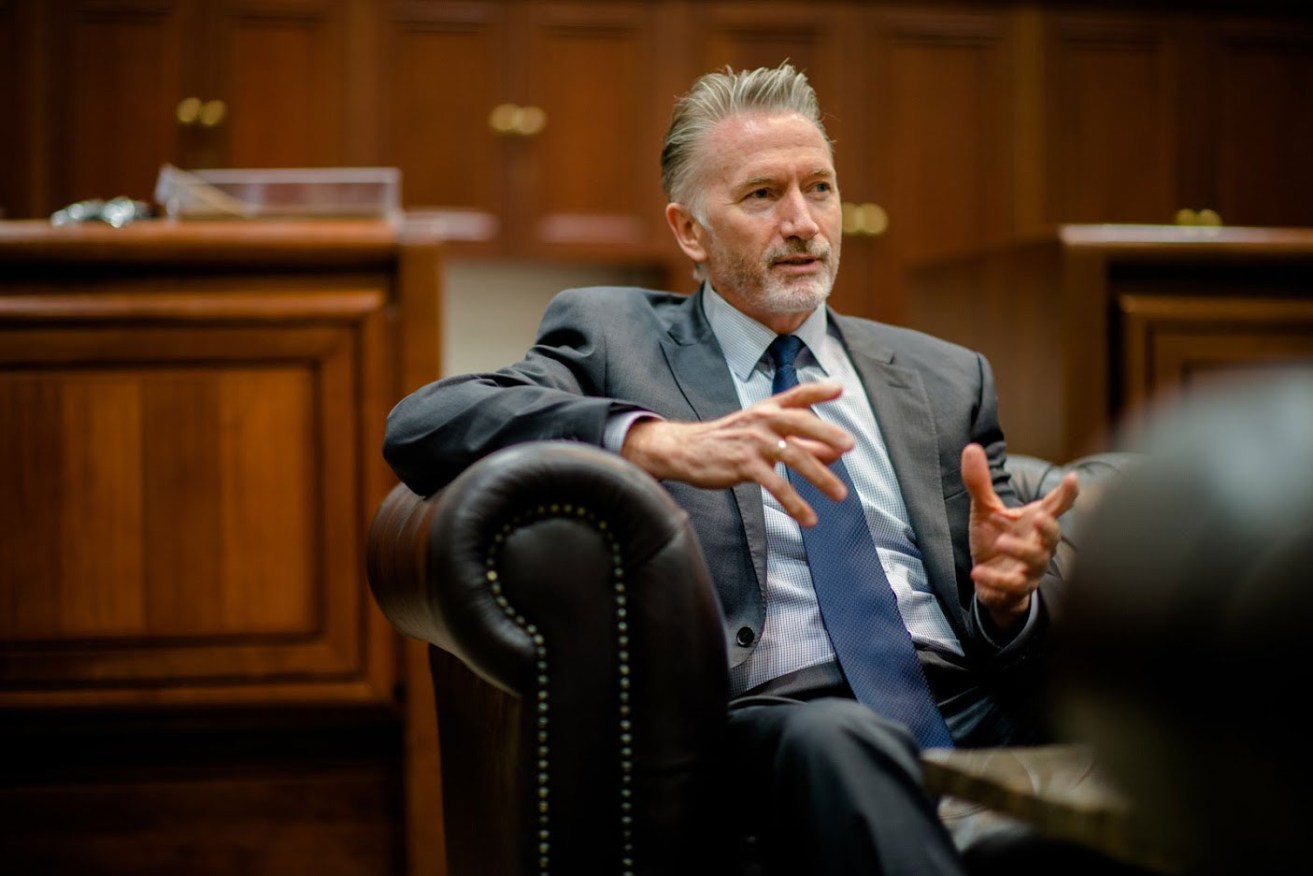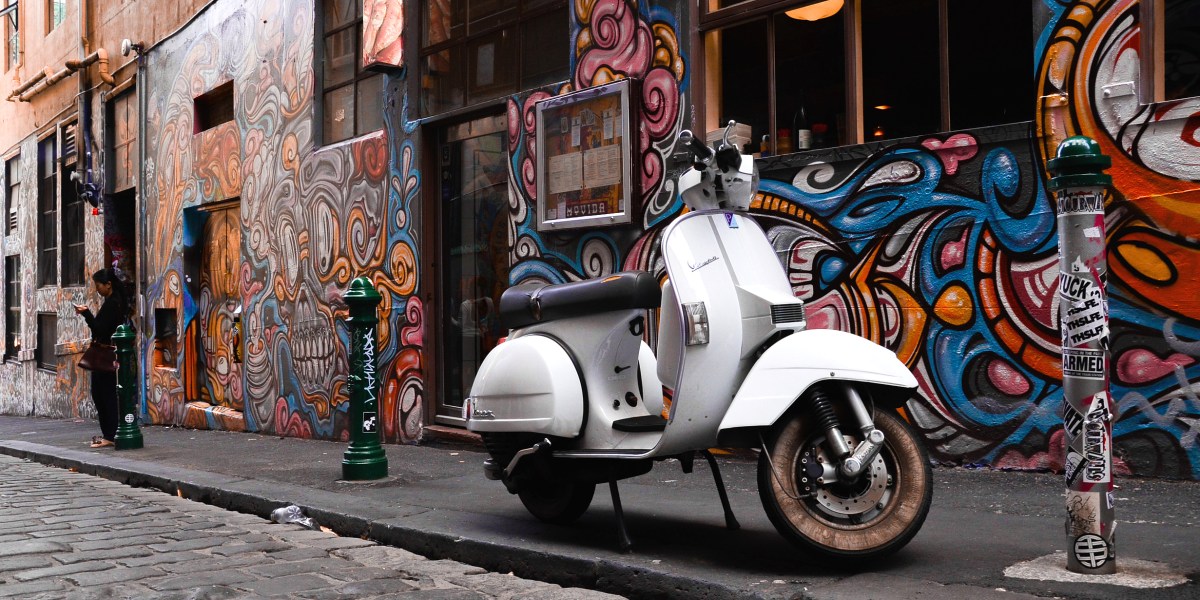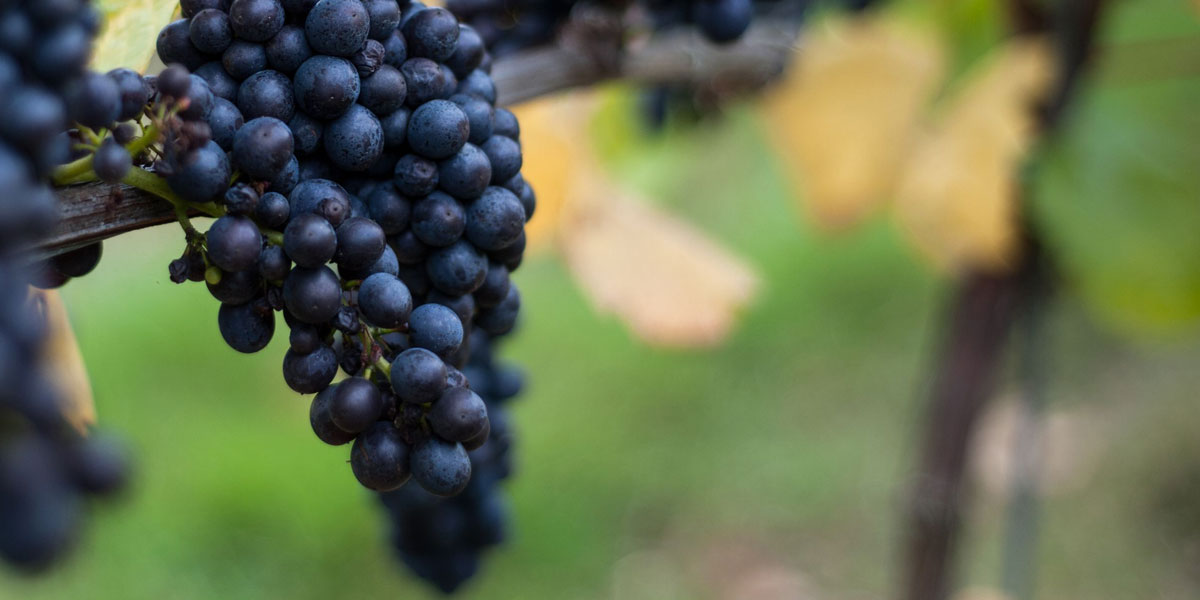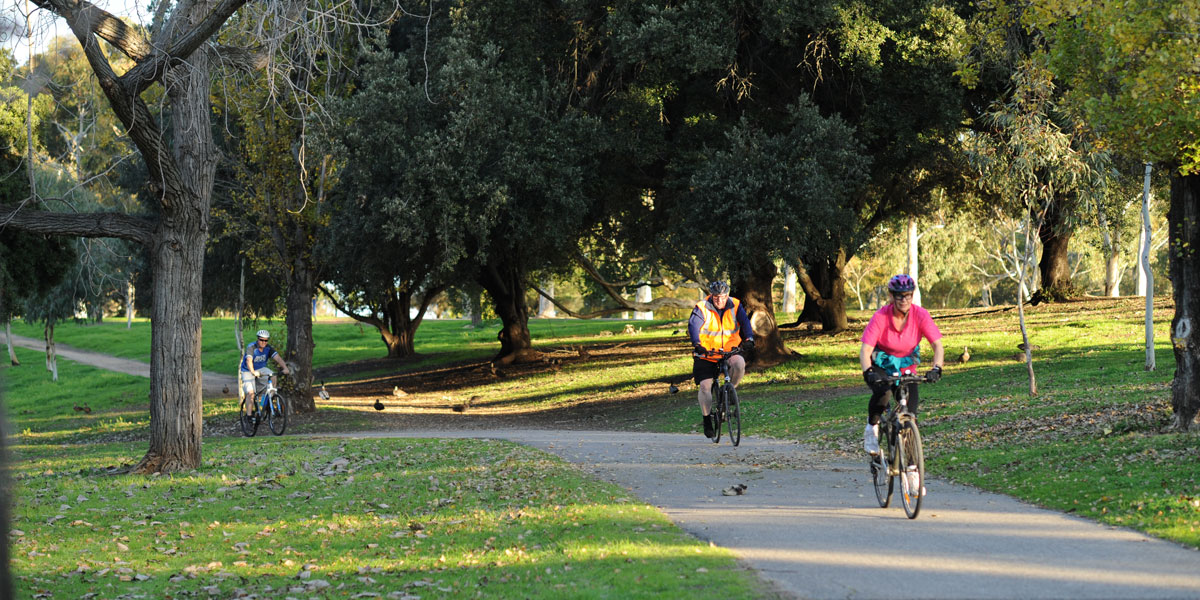10 minutes with … Mark Goldstone
Adelaide City Council’s new CEO may have only been in the hot seat for a few months but he already has a plan to rebuild the organisation.


City council CEO Mark Goldstone. Photo: Nat Rogers/InDaily
Lee Nicholson: It’s now been four months since you joined Adelaide City Council as chief executive officer from Prospect City Council, how are you settling into your new role?
Mark Goldstone: It’s been amazing. It’s been four months of learning and absorbing how this massive organisation really works. It’s on a different scale to any other council that I’ve worked for.
It’s taken four months to learn how we work as an organisation. It’s been quite a ride.
Any CEO who starts in a new role, the challenge is to sit and learn and listen without acting prematurely and making any fundamental mistakes.
The first two to three months I just literally immersed myself in the whole of the organisation bit by bit and I’m now getting a much better appreciation of how we work and what areas need to be addressed.
During the Christmas break, when everyone else went on leave, I sat through and I planned the rebuild of this organisation in a form that I think will be effective.
There are three key components. One of them is developing the strategic plan of council. I anticipate it will go to the February council meeting and, assuming the council members believe it is of a good enough standard and represents their vision, it should be released for consultation over the March period.
That will be an opportunity for the community, the business community to investigate the plan and see how this council is responding to the current economic climate and to work with businesses in the future.
The strategic plan is fundamental to everything we are going to be doing over the next four-year period, 2016 to 2020.
It’s really pleasing that the council has distilled its views right the way down to the key components and those key components really relate to developing a smart city, developing a green city, developing an active and creative city.
From there I’m developing a new structure – everyone knows that structure should always follow strategy – so it is good circumstance I have been able to come in when the strategic plan is hot on the boil. [It] is all about making sure our management structure is well balanced, having the right people in the right positions and enabling the staff to deliver on the strategy of council.
And finally, the third piece in the jigsaw puzzle is working with the elected members to enable the right environment for them to be able to make good-quality decisions.
The combination of all those three things – the strategy, the structure and the meeting and information sharing process with the elected members – I believe in the next six months will create an environment where it’s really positive and will ensure we make some really good-quality decisions.
LN: You mentioned ‘smart cities’, I’ve heard Adelaide referred to this before, so what does smart city mean to you and specifically to business?
MG: That’s an important question. There’s no doubt that the City of Adelaide has great potential to take advantage of the fact that we are early adopters of technology.
Being a smart city isn’t just about IT. It’s not just about using computers or using the internet, it’s about creating greater use for the community of all facets of modern technology.
Some good examples of that are moving from an infringement to an education kind of environment for parking. In doing so we’re going to need to use latest technology where we can have on-site sensors, on-site analysis of parking so we can communicate with people where they’re parking, when they’re parking, how their account is growing. Rather than having expiations, you have payments for shorter or longer stays. It’s being able to determine the difference between those people who just park there all the time.
It’s a change of approach rather than putting money into a meter, overstaying your period and getting a fine. It’s about smart technology where people can make a decision as to where they want to park, when they want to park and how long they want to pay for.
It’s a real change. Parking is just a small example.
There are so many touch points in our community that we can roll out over the next period that will make a tangible difference to residents and businesses as well.
So the whole way we communicate, the way we do business with business is something that I think is an exciting prospect when we talk about smart cities.
LN: While we’re talking of business, what do you think Adelaide does well?
MG: I think Adelaide does well in maximising the potential for the small business to start.
There’s been the small bar licensing which has enabled small businesses to develop.
There’s no doubt that Adelaide is a tough market but, for entrepreneurs looking to initiate and develop, I think there are great opportunities.
I like to think that Adelaide City Council is well positioned to work with new business and startups. We have a good team of people that can accommodate those people who are looking to get into the business sector.
We certainly do well in working with new entrepreneurial businesses and I believe we’re starting to develop mature relationships with existing businesses as well.
I’ve moved from a structure that has five general managers to four directors and one of those directors being a director of growth. That is exactly what it intends to achieve.
Growth and the business sector is a key focus, so are business and economic development and tourism areas of immediate focus for council.
It’s a really good sign that this council’s taking business development really seriously.
LN: If that is what we do well, what can Adelaide work on and do better?
MG: We can work on communicating better, working and developing relationships with the businesses sector.
In recent years we’ve had a place-making approach where we’ve done some really good work in our main roads and our main streets. We’ve worked on Hindley Street , Melbourne Street, Topham Mall and a number of other streets where we’re done a lot of work in really communicating with local traders and trying to work with them to present a better product.
I think that’s paid dividends and the challenge is for us to continue our good work in that place-making space.
The new structure I’m working on will hopefully deliver that. We can be better by [doing] more work in that space, more communication, more open-for-business, and just making it easier to be successful.
LN: You said council is being responsive. How is Adelaide City Council responding to that shift in the SA economy, from being known for its manufacturing and other traditional industries to new sectors?
MG: I agree with you. There’s no doubt that is the future growth of business in South Australia and in Adelaide. Within our organisation we’re acutely aware of that move.
We are resourcing ourselves from here on in going forward to respond to that.
It’s a different skillset altogether and it’s a different environment than what it was five, 10 years ago.
Adelaide City Council has recognised that. We are preparing a new strategy and we’re preparing a new structure to ensure that we are at the forefront and we are able to work with that new dynamic.
LN: We touched on what Adelaide business looks like then and now – what is the future of business in Adelaide?
MG: It is in hospitality and hospitality is an understated industry.
There is a massive opportunity with international tourism. It’s an opportunity that we’re just seeing the beginnings of.
If you talk to the South Australian Tourism Commission they will tell you, without a doubt, Adelaide has enormous potential to benefit incredibly from the economic stimulus that international tourism could bring.
We’re talking about international tourism. Asia is just a short plane ride away. It is such a great destination for people from China and from other Asian countries.
I believe we can really maximise Adelaide as a product and we really need to ensure that when people come from overseas that we develop a product and a system that enables them when they’re here to maximise the benefit of their stay.
We really don’t do that well enough at the moment. I think there is massive potential – it’s a game-changer in my view that we could do so much better.
The whole concierge approach where the people who don’t know the city, who arrive in Adelaide for the first time, how are they are accommodated, how could they best spend their time and their money in the city so when they leave here they have the best time that they’ve ever had.
They go back … and they promote Adelaide as the place you’ve got to go to.
That is just an amazing opportunity. For me future business is all around the hospitality sector and the growth of international and national tourism.
We’re seeing with Adelaide Oval so many more people coming to this city and I think that they’re starting to appreciate how special it is. It’s amazing. People are coming to watch the footy or the cricket who would never have thought of coming to Adelaide before.
I reckon that the status of Adelaide as a place to come to and a place to be has grown immensely as a result.
There is the traditional business, I get that and there are a lot of great entrepreneurial businesses operating at the moment but fundamentally to me I think the hospitality sector and tourism sector is so vitally important for our future.
We just need the city to recognise it and respond.
LN: How collaborative is the State Government with Adelaide City Council’s vision of the city?
MG: There’s no doubt in my view that the objectives of the State Government and the objective of the city council is for a vibrant, successful city that is just going off – as in it is a place to be.
And yes, there are different levels of government, but the fundamental objective is to create that city which is fantastic. So I see a lot of potential for whatever government is place for us to continue to work for the benefit of the city and for the benefit of South Australia.
I think there is a lot of alignment. There are different priorities, I get. There are different points of disagreement, I get. But fundamentally it’s all about building the city.
State government and local government want to do the same thing. The challenge is how can we do that in partnership, in the right manner on the right projects. That’s something that we’re working on.
I think in recent years the relationship between the State Government and the Adelaide City Council has improved. I think it is improving. Yes, there are some issues. There will always be points of disagreement but, by and large, both levels of government are trying to strive to achieve the same outcome and that is there is a better Adelaide.
LN: We’ve skirted around my next question, finally, what will Adelaide look like by 2020?
MG: Smart, green, liveable, boutique city which is full of rich experiences. That’s fundamentally what we’re looking to achieve.
I think the word boutique shouldn’t be underestimated. If you go around Australia there is no city like Adelaide. You do get the Melbournes, the Sydneys, the Brisbanes and they’re just big sprawling cities.
The parklands create a boutique city of worldwide significance and I don’t believe our community really understands how amazing the parklands are.
The fact that they’re there in the first place is just incredible because it creates a defined, boutique city just by its geography.
There are no other cities like that.
I believe that a boutique city is something we should be proud of and we should protect with all of our might and ensure that what we’ve got is something different to the rest of Australia and the rest of the world.
Again, the recognition of that is just not there. In the future I think it will be.







